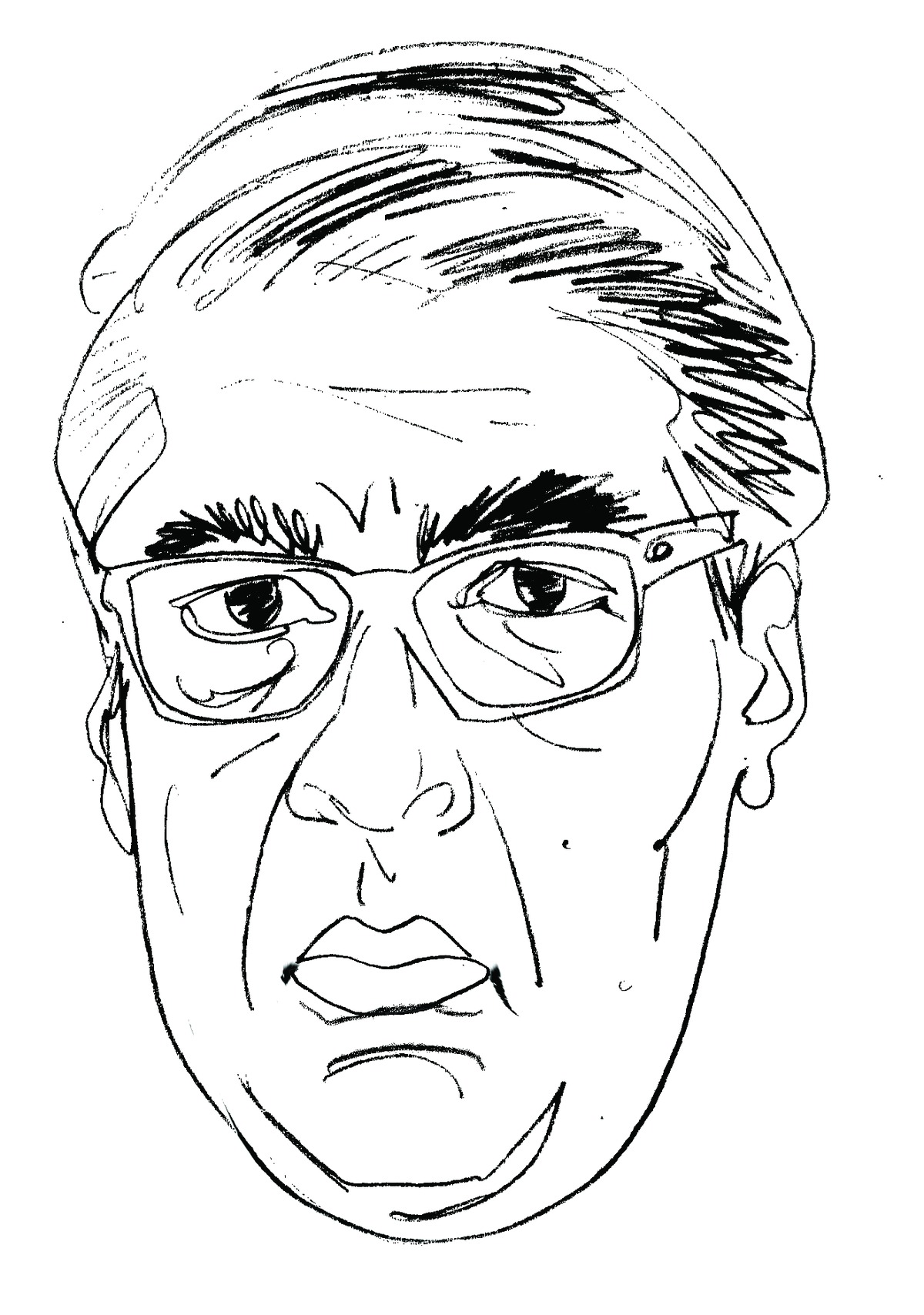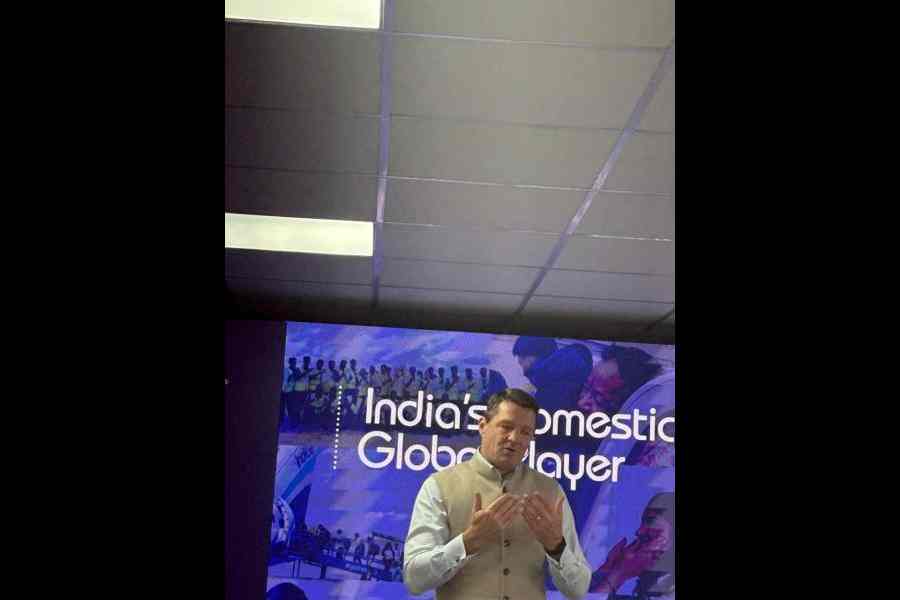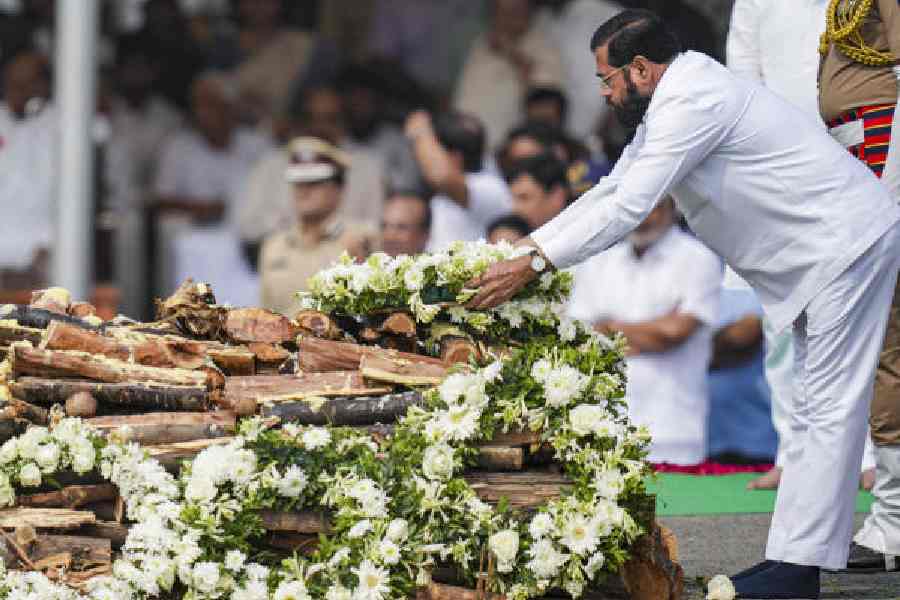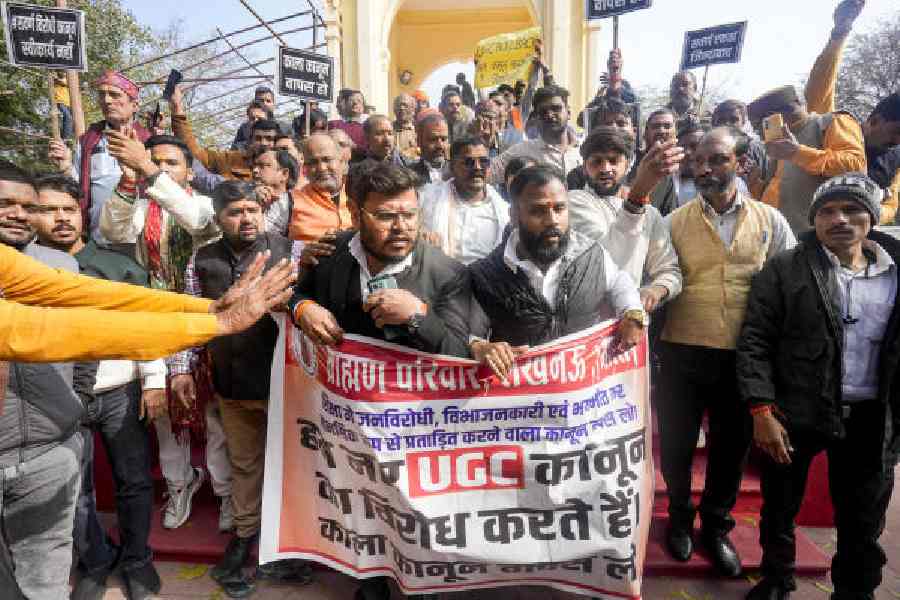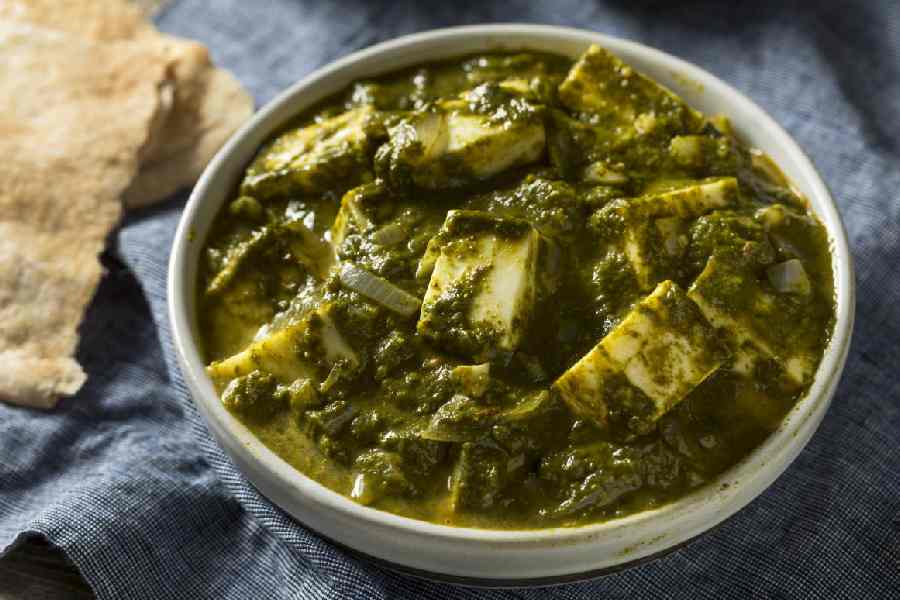
Some months ago, I was privy to a conversation between an eight-year-old and her mother at a dinner table. They were in awe of the Sanjay Leela Bhansali extravaganza, Padmaavat. What particularly struck me was the little girl's description of the former ruler of the Delhi Sultanate and the central character of the film, Alauddin Khilji. She said: "Since (Alauddin) Khilji was a Muslim, he was very dirty. He didn't shower for days."
I hadn't seen the film then, but I voiced my objection to this interpretation. I got wondering what horrifying shape such nascent prejudices would assume in the years to come.
Today, sitting across Hindi scholar Purushottam Agrawal at his Delhi home, I repeat this episode. After a patient hearing, the 62-year-old academic and writer says, "Unfortunately, this film contributed to promoting such a feeling." He is referring to the fetishisation of Islam and the increasing Muslim hatred in a Hindu Right-wing ruled New India.
It is a sultry afternoon. As we discuss politics, history and literature, one of the many kittens gambolling in the room snuggles between my feet. Agrawal and his poet wife, Suman Keshari, are cat lovers. The pets - Badka (he is no more), Brownie, Sotli and Chhutku even find mention in the Author's Note to Agrawal's new book, Padmavat: an Epic Love Story.
Once we get past the feline distraction, we are back on topic. Agrawal is telling me about the clichés about Muslims - invaders, devils, power-hungry, treacherous, and as the child said it, unclean - that are propagated in daily life. Knowingly or unknowingly, such clichés were reflected in Bhansali's commercial flick.
Popular art, these days, Agrawal says, is pandering to existing sentiments. "But art, whether film or poetry or novel, is expected to clear misconceptions or at least problematise the given perceptions."
That's exactly what his new book attempts to do. It retells Sufi poet Malik Muhammad Jayasi's epic poem, the same that was composed in 1540. "Jayasi's Alauddin Khalji [Khilji] is not a monster," writes Agrawal. "His obsession with Padmavati coupled with his intoxication of power leads him to act in an immoral way in this particular context... he is not only a competent ruler but also a king who gives alms to the needy without bothering about their religious identity... Khalji, like any other character in the epic, is a product of his times. He is destined to play a 'negative role' in this particular saga but Jayasi is careful not to allow this negativity to overshadow his overall personality."
Jayasi's Padmavat, Agrawal says, is a living part of our cultural legacy. The characters are not conceived based on religious backgrounds or ethnic identities. He says, "This is specifically a post-modern problem, you reduce human beings into a certain identity, good or bad. That's where this understanding is coming from, that Khilji was cruel or violent because he was a Muslim."
Agrawal is currently a visiting professor at New Delhi's Centre for the Study of Developing Sciences. His long CV, viewable on his site, establishes his abiding research interests in Bhakti poetry, Kabir, vernacular modernity. His list of publications runs long. His Twitter profile reads - writer, academic and political commentator.
Distorting literary work for political or commercial gains on religious lines is suicidal, the literary critic warns. He continues, "Indian diversity is not just confined to religion; there is diversity in language, eating habits, culture."
According to Agrawal, Padmavat, composed in the styles of masnawi (Persian tradition), dastan (Persian style of storytelling) and in the metres of doha and choupai - all rhythmic expressions of speech in Indian literature - is considered the peak of vernacular, mostly Awadhi, tradition of prem-aakhayans or love narratives, coming down to Jayasi's times from the preceding two centuries.
Originally written in Persian script, Jayasi's Padmavat, a 700-stanza poem, is a love story. Agrawal writes about Jayasi's work: "Padmavat is a work of creative, imaginative literature woven around an episode in history... Jayasi's genius has turned the legend of Padmini into real history; in fact, she has become more than real."
Unfortunately, instead of appreciating the literary genius of the real Padmavat, people paid more attention to Bhansali's opulent extravaganza either by liking it or opposing it. But the fact is, there is no historical evidence of the existence of Padmini. Before Padmavat, a literary romance called Chhitai Charit had references to Padmini of Chittor. Agrawal says, "Some people believe there was someone called Padmini, some say, no, she was only a poetic creation. We really don't know. But the point is, one must admire Jayasi's Padmavat for the beauty of the literary creation and not focus on the violence.
He underlines that when a people try to prove desperately the historicity of a cultural memory, it reflects insecurity. "In your cultural memory, not everything is history," he stresses. "In this obsession to historicise everything, the sense of history is bound to turn into nonsense of history."

He talks about what he calls the "pastness of the past", which, he cautions, one should never forget. The conversation turns to the BJP government's efforts to erase the Mughals - Babar, Akbar, Aurangzeb, because they were "invaders". He says, "You cannot go on revenging the excesses of the past. Remember what Gandhi said - 'an eye for an eye only ends up making the whole world blind'."
Agrawal's own book is dedicated to the future - his children, Ritambhara and Ritwik, and their generation. He refers to them as "graduates of the WhatsApp university". He says, "I wrote this thin book in a conversational style so they can grab a copy and read it."
Fixing his rectangular glasses firmly on his nose, the clean-shaven writer says, "You know... before the advent of this era of neo-illiteracy, which started 15 years ago with the advent of television channels and social media, people knew about the basics of Padmavat and the greatness of Jayasi."
But how did Agrawal come to write this book? It happened soon after the controversy over Bhansali's film - the Karni Sena, a caste group in Rajasthan, ransacked cinema halls for screening the trailer, which they alleged, showed the 13th century Rajput queen, Padmini, in poor light and disrespected Rajput pride. Around this time, his friend and author, Devdutt Patnaik, talked him into writing Padmavat. Patnaik has done the illustrations for the book.
Padmavat has been Agrawal's favourite text since his postgraduate days at Jawaharlal Nehru University. He writes, "I have been in love with Padmavat, composed by a poetic genius who had no sight in one eye and was hard of hearing in one ear; who was acutely conscious of his 'ugly appearance' and... 'confident of his poetic talent'."
Agrawal has vividly described Jayasi and his work in his book. He thought it was important to tell the audience about the poet so they had a fair idea of the creative force behind Padmavat. Jayasi's work was apparently influenced by Ram Katha, Mahabharata, Puranas and also the Nathpanthi tradition and Islamic theology. Nathpanthis are ascetics dedicated to holistic yoga sadhna. Agrawal says, "His hero, Ratnasen, goes to Simhal island in the guise of a Nathpanthi yogi, not as a Sufi fakir. His acquaintance with Hindu traditions and his roots in the everyday life of Awadh determined the choice of his idioms, metaphors and allusions. His knowledge is so deep and rich that it can intimidate many self-appointed guardians of Hinduism."
The first scholarly edition of Padmavat, he tells us, was by Ramchandra Shukla in 1924, post the Khilafat movement - a campaign led by Indian Muslims against the British to restore the Ottoman Caliphate in Turkey and widely supported by Hindus, too. "To Shukla, Padmavat was a luminous signpost in the shared search for a pathway to God, where Muslims were willing to listen to the story of Ram and Hindus were ready to hear the dastan of Hamza," he says.
He holds forth on how Jayasi's imagination has not been understood by the "modern day" audience. Bhansali's film also misinterpreted it, he rues. For example, the filmmaker glorified jauhar in his movie.
Agrawal says it would have been foolish on Jayasi's part not to describe a custom - good or bad - at the appropriate moment. "But it is infinitely more stupid on our part to go back to the mindset of Jayasi's time and glorify jauhar and sati now."
But regression defines these times. I point out that the BJP leader from Haryana, Suraj Pal Amu, offered a reward of $1.5million for the beheading of Deepika Padukone, who played Padmavati in Bhansali's film. "This hatred against women is a psychological and sociological problem," says Agrawal.
He will delve deeper into "misogyny" in his upcoming book. It will have a chapter on Kabir's misogynistic writings. Says the writer and Kabir scholar, "I do not follow anyone blindly, not even Kabir."
A clarification: July 8, 2018.
Jayasi's Padmavat was written in the Persian script, not Persian (as mentioned in an earlier version of this report).

